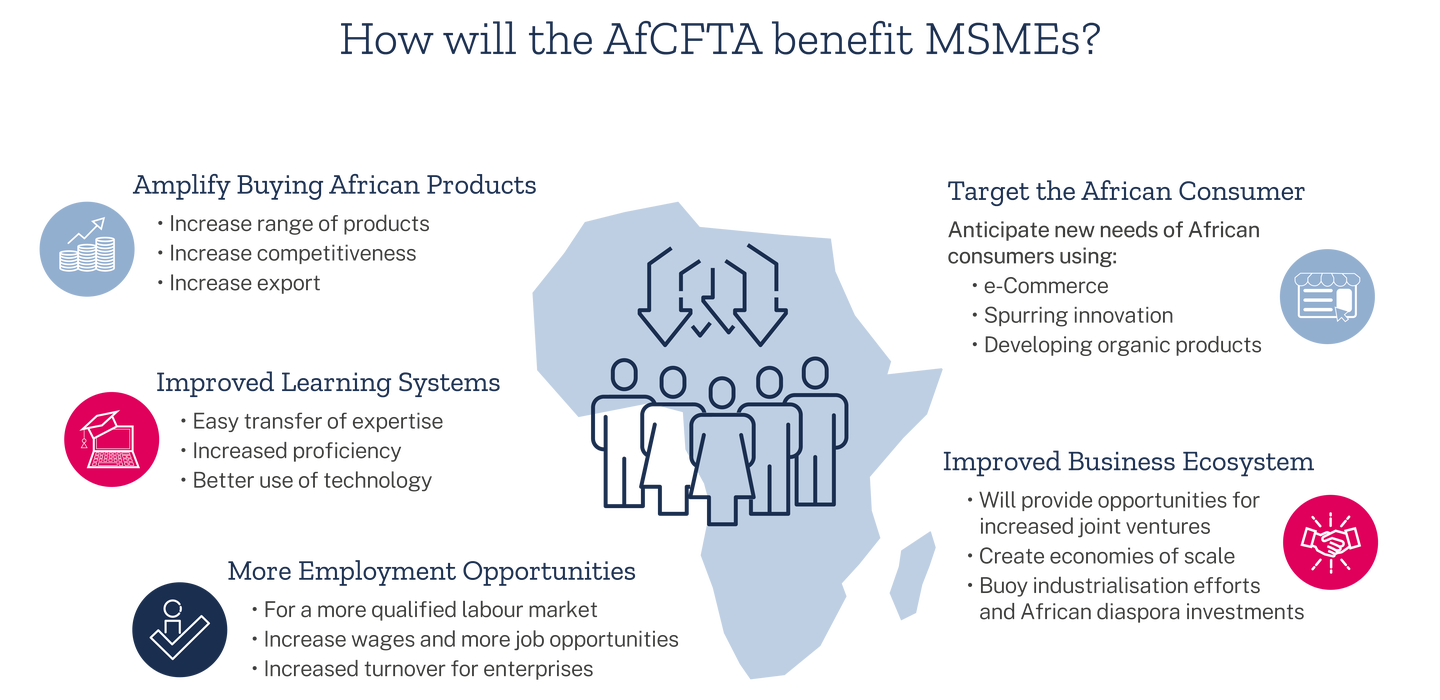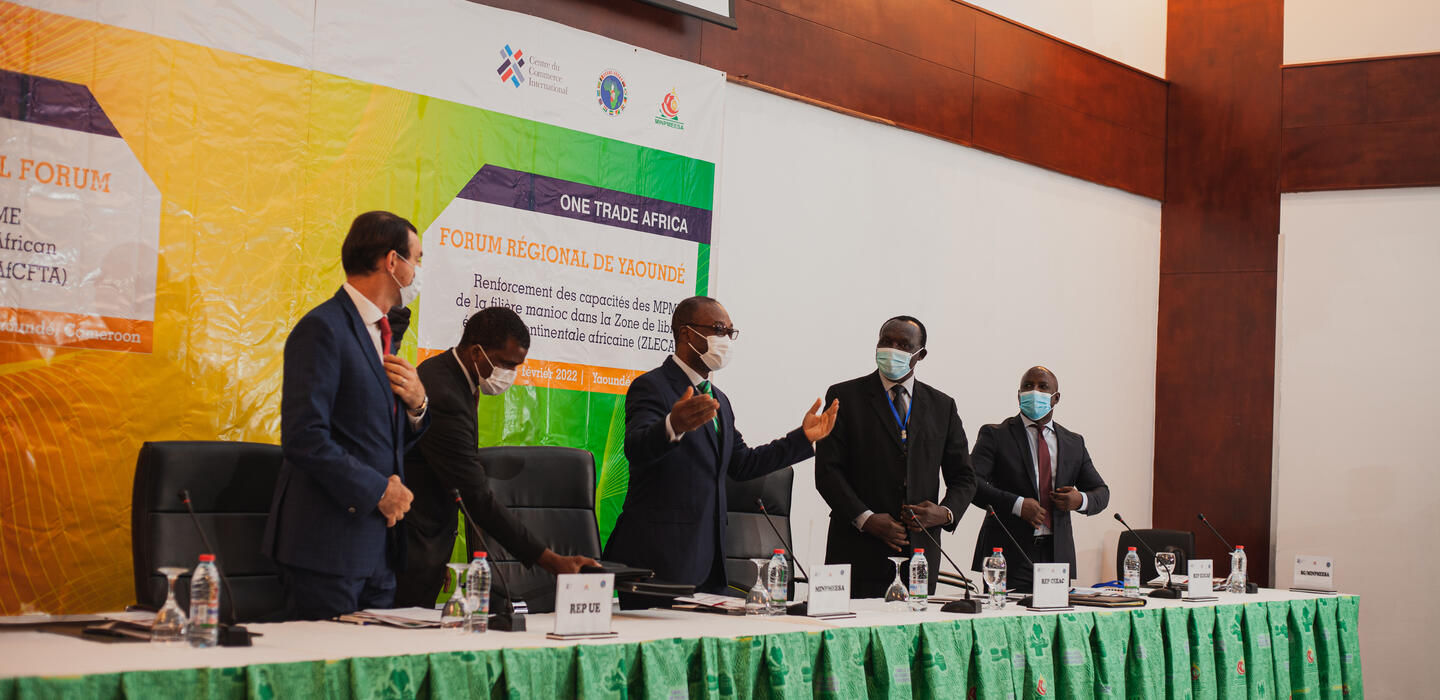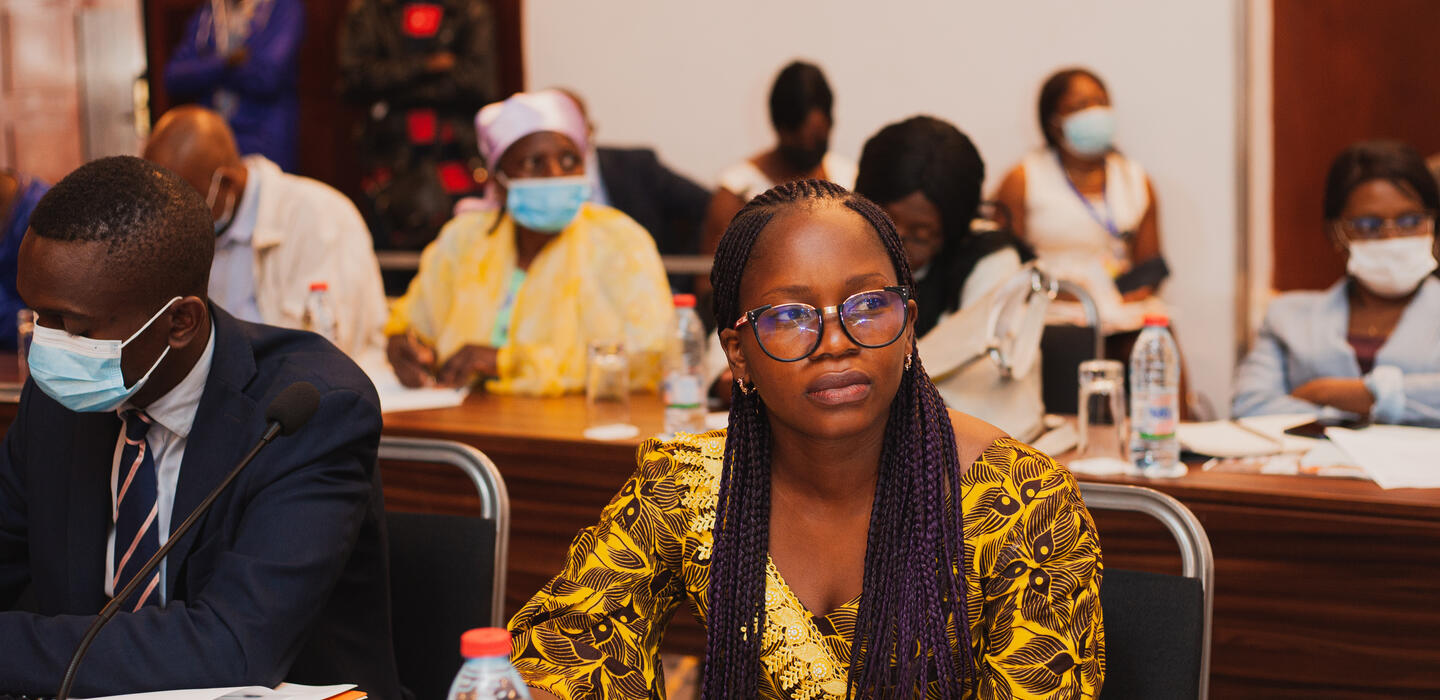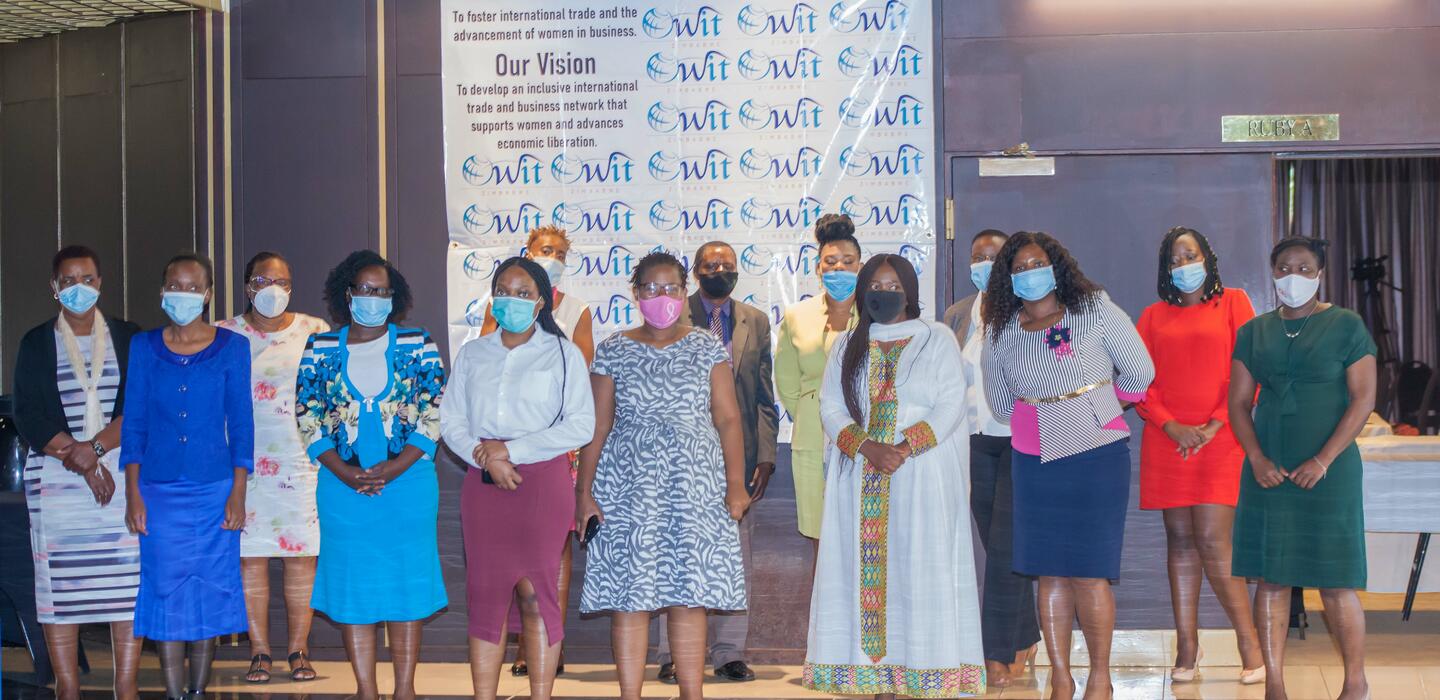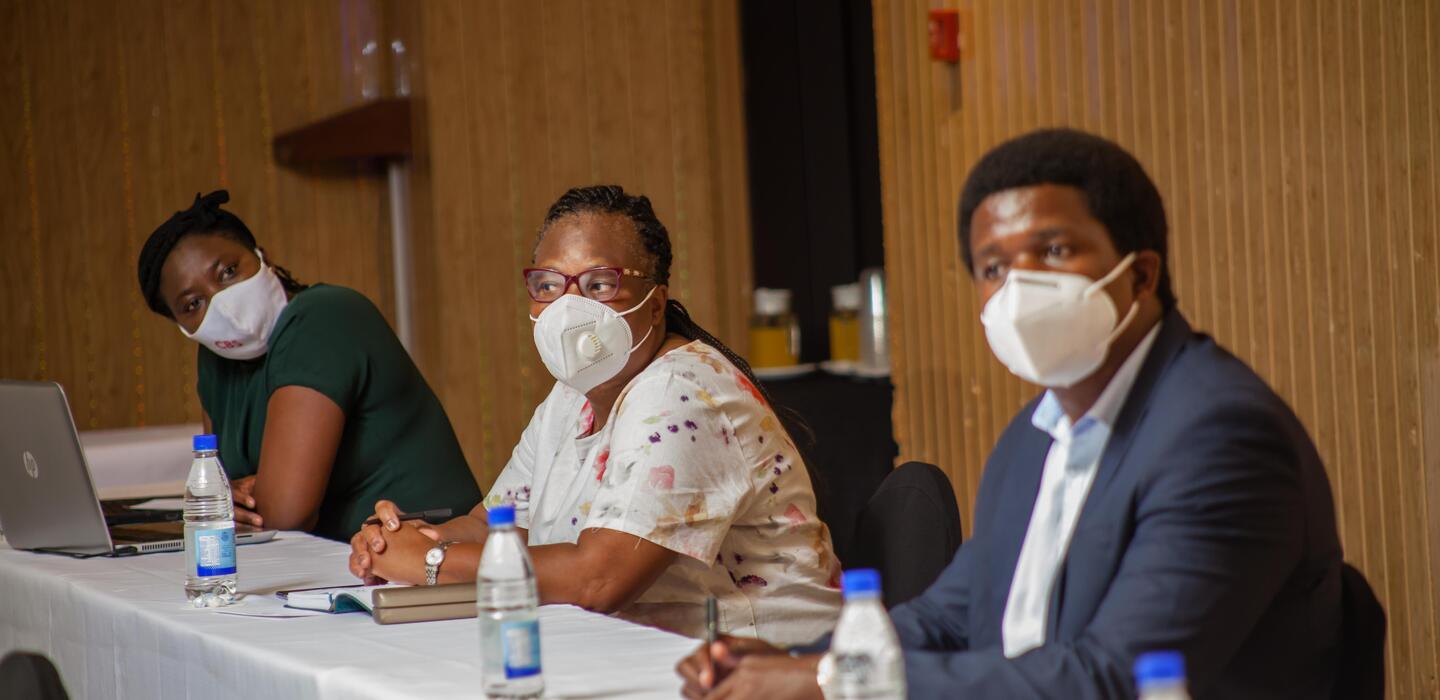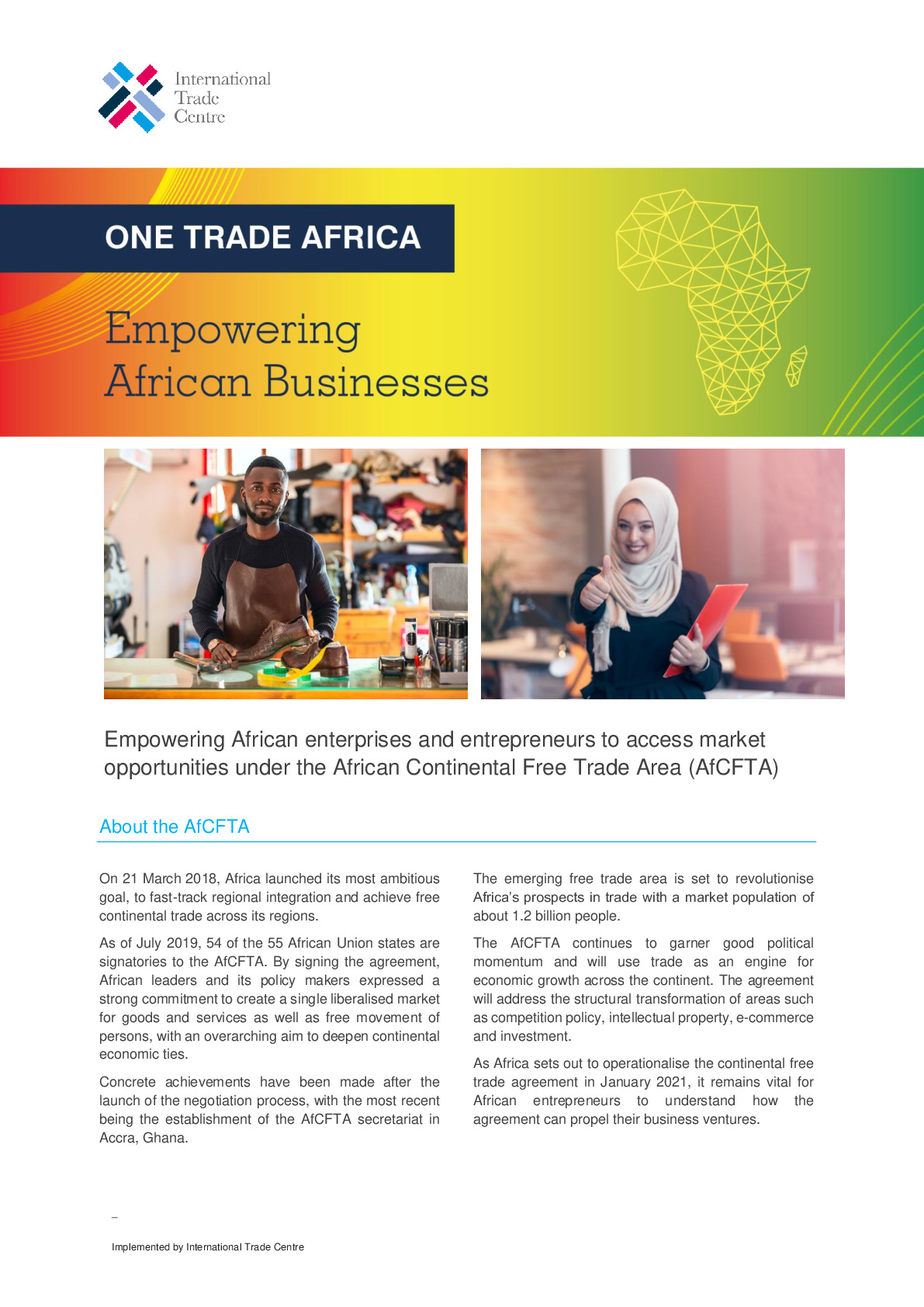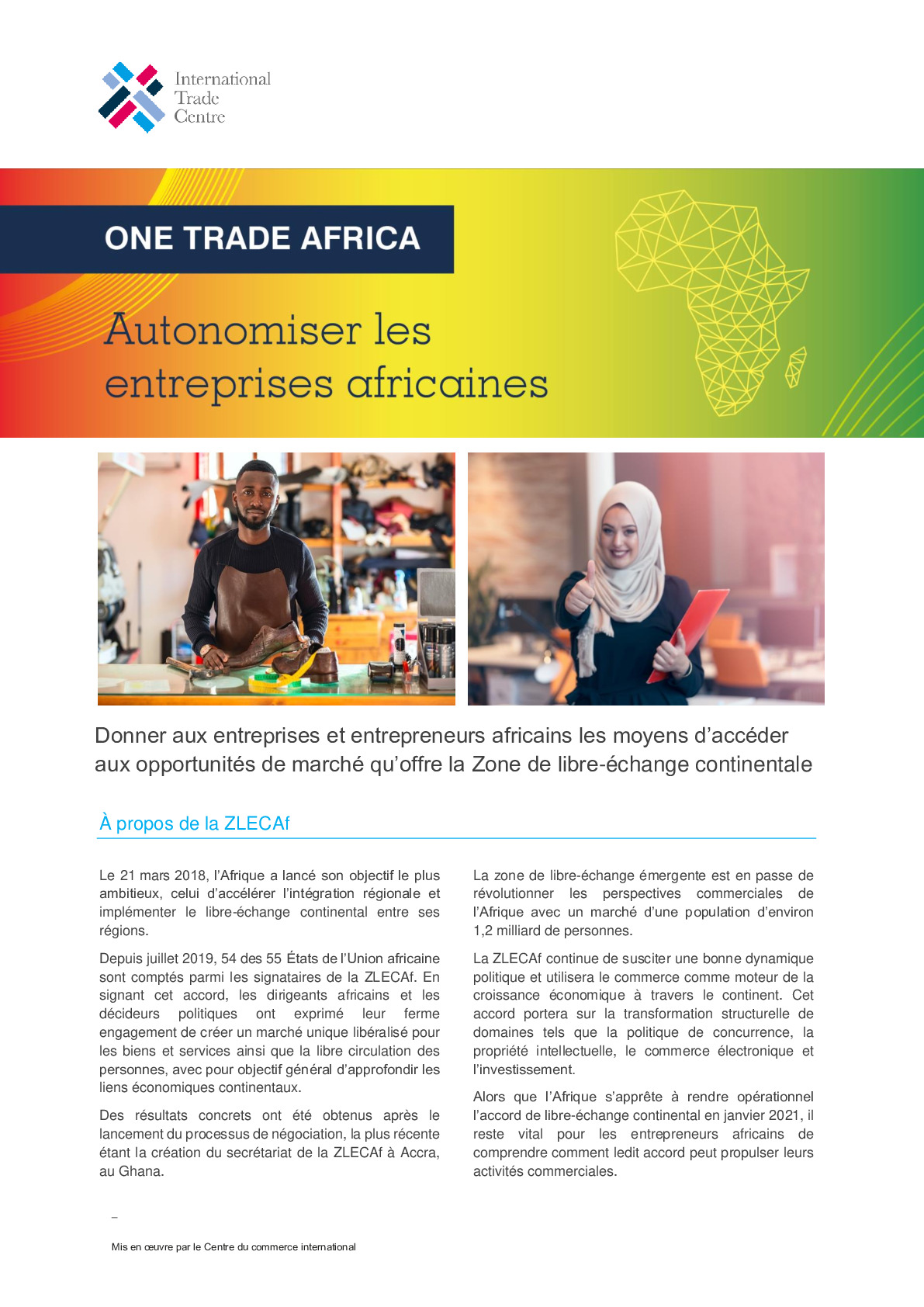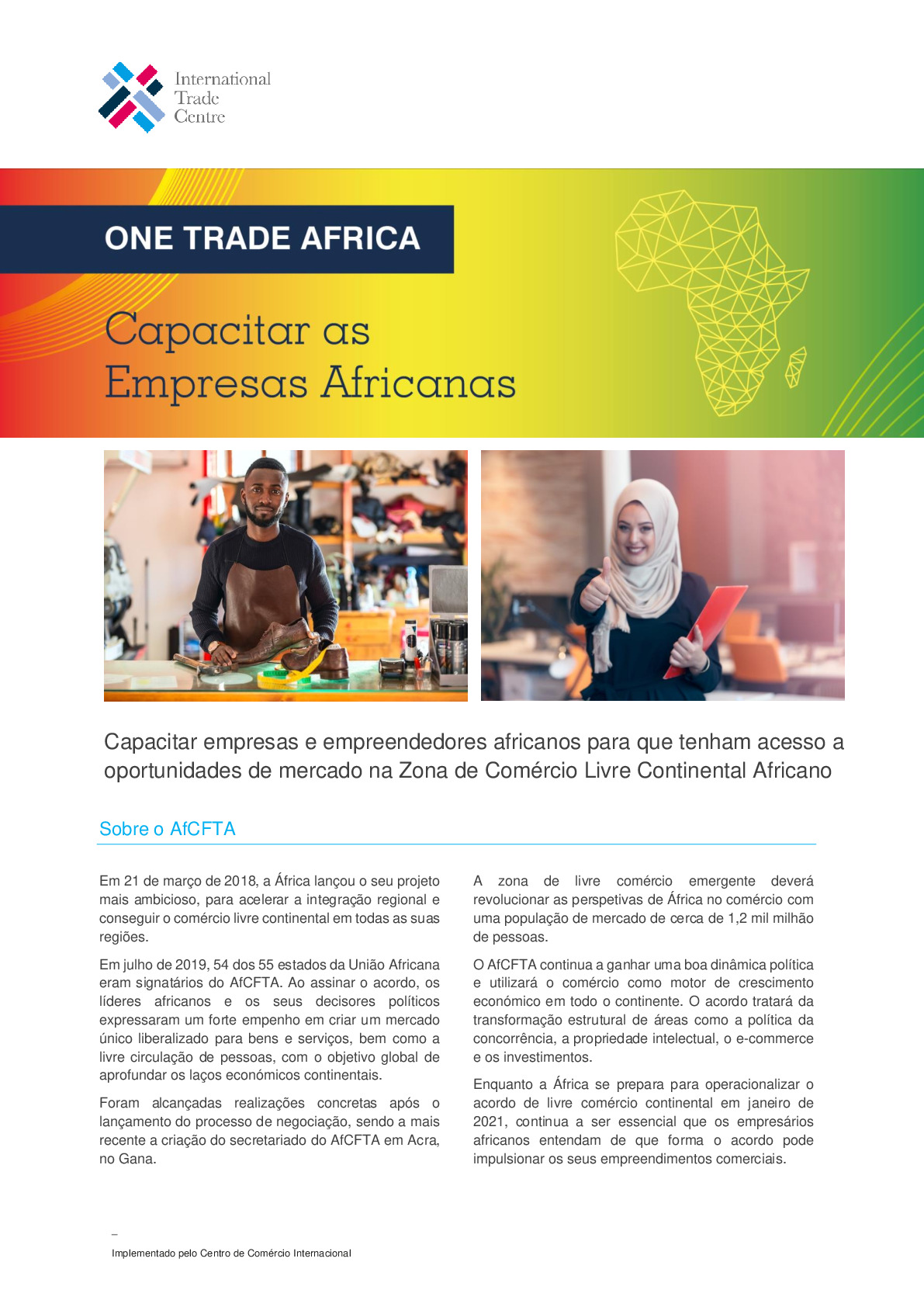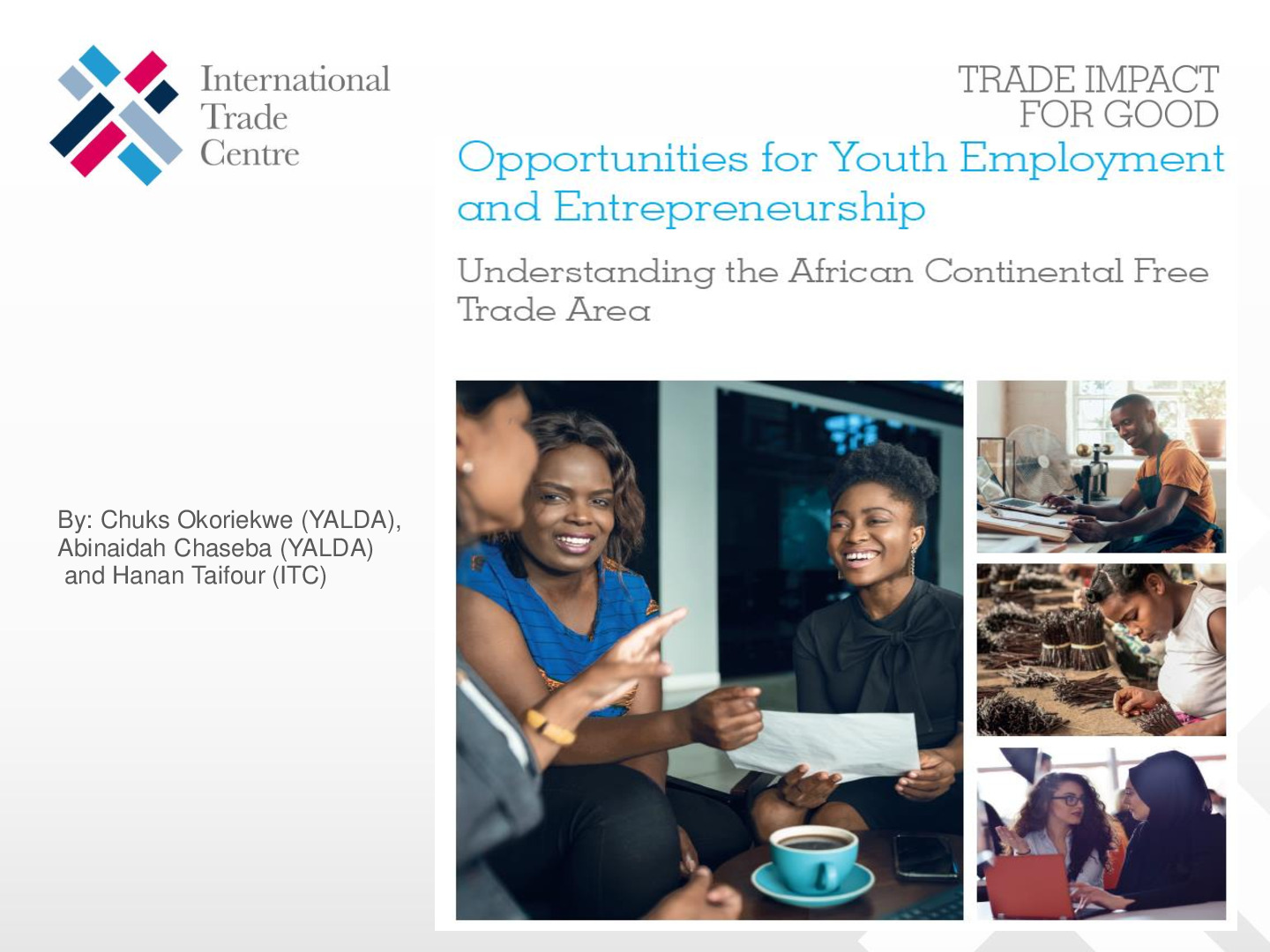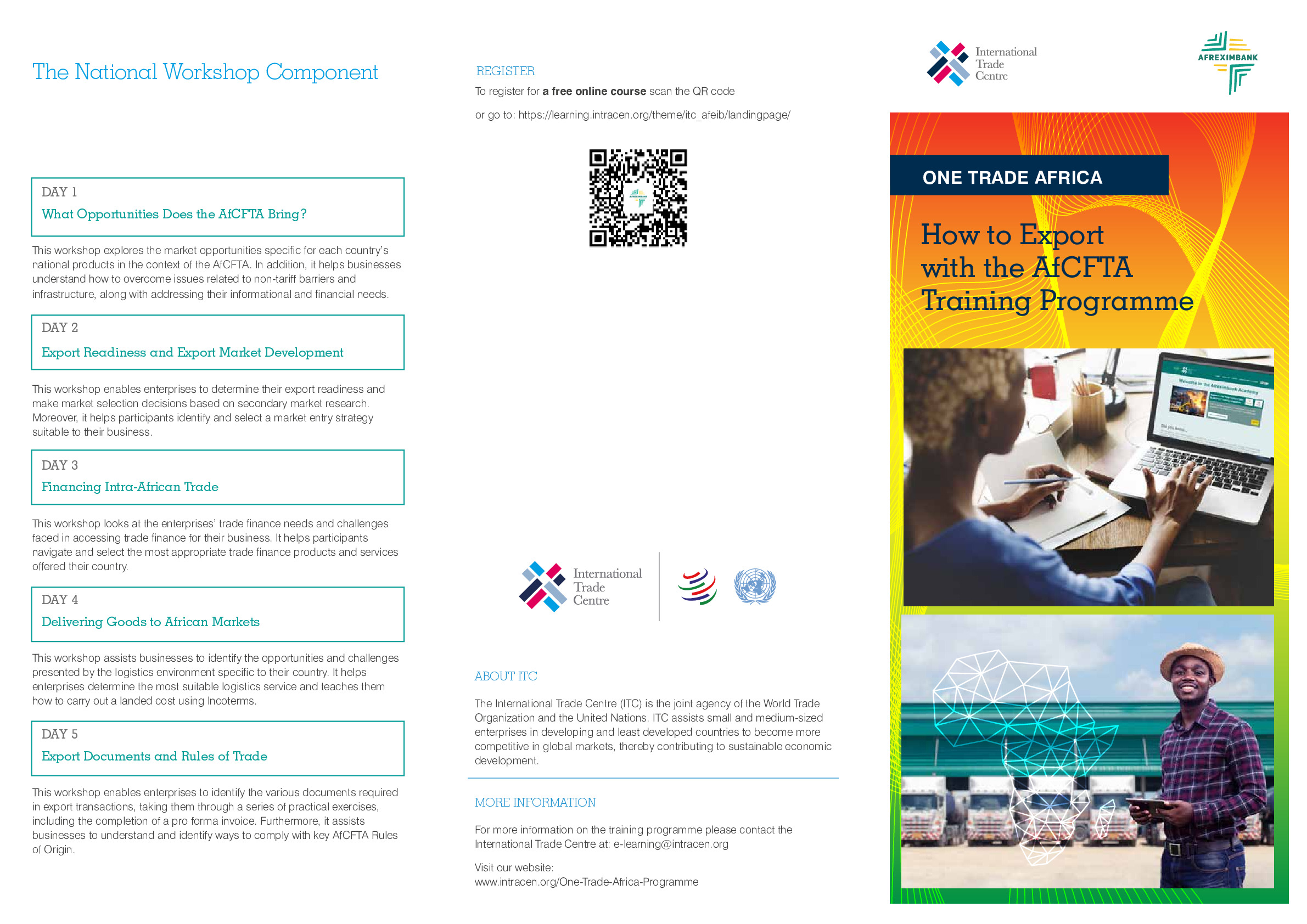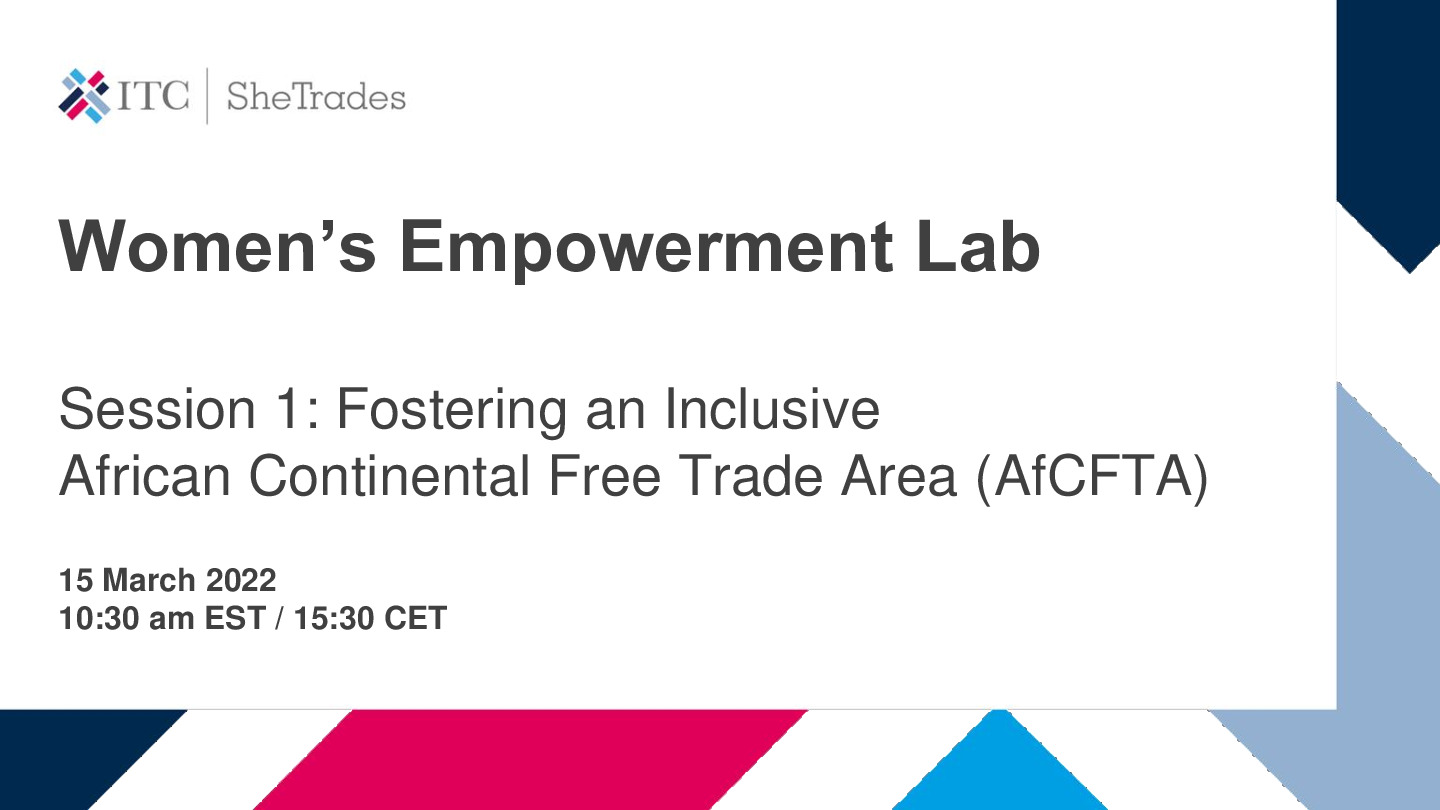Atelier de formation Casablanca: Accompagner les exportateurs marocains à tirer profit de la ZLECAf
Casablanca
<p>Les deux jours de formation de l’atelier de Casablanca mettront l’accent sur les étapes clés d’une exportation réussie dans le cadre de la Zone de libre-échange continentale africaine (ZLECAf) et prépareront les entreprises marocaines à tirer pleinement profit des opportunités offertes par le marché unique. </p><p>Les conditions préalables pour participer à l'atelier : avoir suivi et validé le programme de formation en ligne gratuit de l’Afreximbank Academy « <a href="https://learning.intracen.org/theme/itc_afeib/landingpage/">Comment exporter avec la ZLECAf</a>, » comprenant 7 modules, avant le <strong>30 avril 2022</strong>.</p><p>Les participants sélectionnés pour participer à l’atelier de Casablanca seront notifiés par email début mai 2022 et recevront les détails de participation (lieu, programme).</p>






